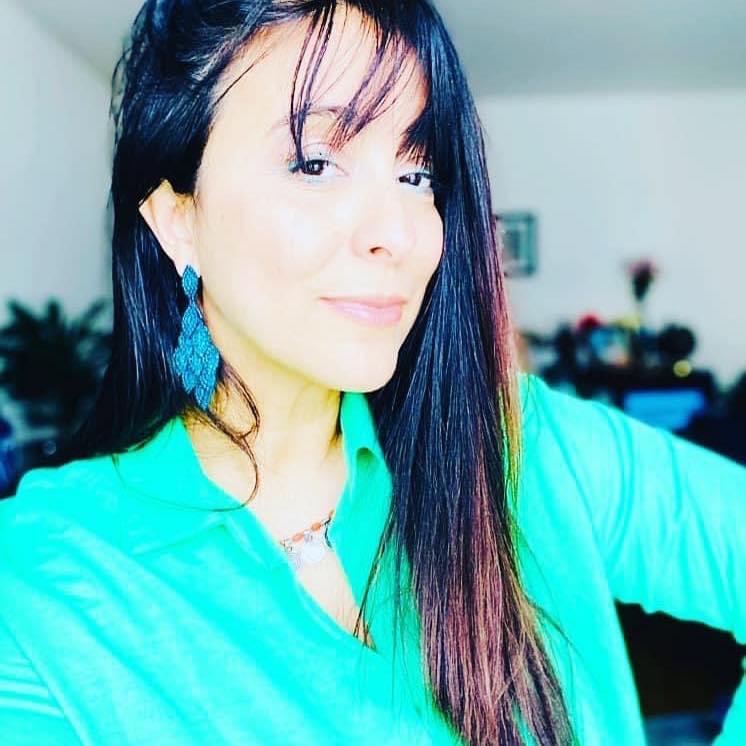
« Nos cœurs sont pleins de printemps, vivre est une prière que seul l’union des hommes peut exaucer » Rachida Belkacem
“Our hearts are full of spring, living is a prayer fulfilled only through men’s union”
« Le ciel n’est pas sans mémoire, nos vies l’emplissent de notre courage intense et notre humanité. »Rachida Belkacem.
“The sky is not without memories, our lives fill it with intense courage and humanity”
« Tu naquis le jour de mon crépuscule,
La lueur éclairant mon chemin,
Me tendant la main,
Faisant éclore d’un geste les fleurs,
Transformant chaque combat,
Par ta présence épurant le monde,
Le transformant en bénédiction divine »
“You are born the day of my dusk,
The light shining on my path,
Handing me your hand,
Making flowers blossom with a gesture,
Transforming every combat,
Purifying the world through your presence
And transforming it to a divine blessing
Les secrets de l’appartenance
Certains regards ne sont pas d’aujourd’hui,
Ils reflètent un ailleurs lointain,
Une histoire,
Une vision portant les âmes de nos ancêtres,
Certains sont plus puissants que d’autres,
Plus souverains,
Ce sont des guides,
Que les hommes appellent suppléments d’âme.
Ce regard est libre, s’affranchit des exigences de l’instant.
Témoin de nos amnésies diurnes.
The secrets of belonging
Some looks are not from today,
They reflect a distant elsewhere,
A history,
A vision carrying the souls of our ancestors,
Some are more powerful than others,
More sovereign,
They are guides,
That men call soul supplements.
This look is free, frees itself from the demands of the moment.
Witness to our diurnal amnesias.
Sonorités intérieures
J’ai caché des fleurs dans tes silences,
Ton absence me murmure intensément : rien ne dure,
Tout continue d’exister,
Il su’it d’apprendre à voir,
Je me laisse envahir par les notes de ta voix,
Un murmure fragile, chargé de vérité,
Hypnotique et onirique,
J’y crois.
Je n’ai pas le choix,
Je te porte en moi,
J’ai caché des fleurs dans tous les silences,
Elles me parlent d’éternité dans l’éphémère.
Je n’ai pas le choix,
J’y crois.
Inner sounds
I have hidden flowers in your silences,
Your absence whispers to me intensely: nothing lasts,
Everything continues to exist,
It is enough to learn to see,
I let myself be invaded by the notes of your voice,
A fragile whisper, full of truth,
Hypnotic and dreamlike,
I believe in it.
I have no choice,
I carry you within me,
I have hidden flowers in all the silences,
They speak to me of eternity in the ephemeral.
I have no choice,
I believe in it.
I was born in Hauts-de-France, live in Ile-de-France, graduated in occupational health from the University of Paris-Est Créteil.
I have been involved in the world of culture in France and Morocco for several years.
A former radio columnist, I was decorated with the High Badges of the Divine Academy in Paris in 2018 and in 2021 with the title of Grand Ambassador of Culture and the Arts for my investment in the field of international culture.
In 2020, I had the pleasure of being a member of the jury for the literary prize “D’ailleurs et d’ici” when it was created by Marc Cheb Sun.
My first novel “La révolte des secrets” was published in January 2020.
I collaborated on the book “Morocco de quoi ont-nous peur” under the direction of Abdelhak Najib and Noureddine Bousefiha Editions Orion.
True to my dual French and Moroccan culture, I was chosen and featured in the art book “Le temps des femmes libres” by Abdelhak Najib alongside 150 committed and inspiring women in Morocco and the diaspora. A book dedicated to women, to all Moroccan women who have marked their time, women who distinguish themselves through their journeys and their paths in life.
In 2021, I published in France a collection of poetry “Phronésis” Editions Mindset, (Illustrations Ilham Laraki Omari painter). It has been available on the mindset, Amazon, Fnac websites and in all bookstores in France since July 2021.
In 2022, I also participated in the international literature event in January, a literature festival where life meets literature: “Panorama International Literature Festival 2022” representing France.
I also participated in the Paris-France event, placed under the theme “Morocco, land of cultures and arts” at the Fondation Maison du Maroc – FMDM as an author and speaker.
I had the privilege of exhibiting and signing my books at the famous and prestigious Carrousel du Louvre in Paris in April 2022 with Divine Académie.
On October 8, 2023, I received the literary prize “Coup de cœur” at the book fair in the city of Soissons in France for my collection of poetry “Phronesis”. A fair paying tribute to women and writing.”
This literary journey led me to be appointed President of the René Depestre literary prize in 2023 for Editions Milot and the Adventus Nova association in Paris, a prize to pay tribute to the illustrious writer René Depestre whose work remains a source of light. A unique international prize allowing authors from all continents visibility and spotlighting. The strength of this prize is to bring an audience together with a work, regardless of the country.
A commitment with an international dimension that honors me.
In 2024, I preface and participate in the collective work Poésie: Luttes et Combats published by Milot, a collective work under the direction of Amar Benhamouche, a reflection by authors of different sensibilities on the place of poetry today and tomorrow.
Finally, I participated in several book signing sessions with readings and spoke at numerous conferences in France and abroad.
I remain on humanist themes with an attraction to nature, women, and their connection to the world.


